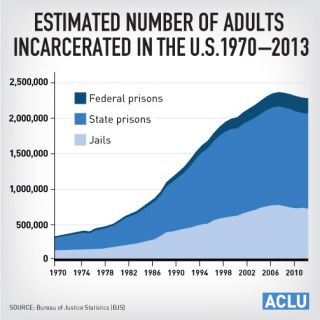Harsh Justice Fails to Reduce Crime
“As an ethicist, I think a fair amount about moral and political issues. One thing I’ve noticed is how often views on those issues really depend on claims of psychology—and if those psychological claims are wrong, it’s pretty likely that the moral and political view is mistaken too. Here I’d like to give one example of that.”
Article by: Michael Cholbi Ph.D., 13 Sep 2015, Psychology Today [Original Article]
Why doesn’t increasing the severity of punishment lead to less crime?
As an ethicist, I think a fair amount about moral and political issues. One thing I’ve noticed is how often views on those issues really depend on claims of psychology—and if those psychological claims are wrong, it’s pretty likely that the moral and political view is mistaken too. Here I’d like to give one example of that.
In recent times, many people, particularly in the United States, have apparently believed that
Punishing criminals deters crimes—in fact, the harsher the punishment, the more it will deter crime.
This widespread belief is reflected in the fact that, until very recently, a ‘get tough’ mentality dominated American political discourse surrounding crime. From the 1970s well into the 21st century, politicians risked little by advocating for longer sentences and harsher penalties. In advocating for harsh punishments, these leaders generally assured the public that tougher sentences meant less crime.

Source: Bureau of Justice Statistics/ACLU
But that turned out not to be the case. Plenty of people went to prison and for longer stretches. And starting in the early 1990’s, crime began a two decade long decline that the public seems by and large not to have noticed. Yet there’s little evidence to suggest that the threat of punishment—even the threat of very harsh punishment, such as the death penalty—is responsible for the drop in crime. A massive 2014 study undertaken by the National Research Council announced that one of its “most important conclusions is that the incremental deterrent effect of increases in lengthy prison sentences is modest at best.” Put in less academic-ese: Threatening people with increasingly harsh punishments doesn’t discourage crime.
This means that the common view about punishment and deterrence—the view that led to huge increases in the U.S. prison population—is mistaken. But how do we explain this finding?
[Read the rest of original article]
Michael Cholbi Ph.D., is a Professor of Philosophy at California State Polytechnic University, Pomona.
Travis Hiland, ReFraming Justice







